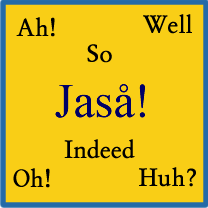
There seem to be different ways to say here in Russian. In some contexts you use тут (tut), and in others здесь (zdyes’), or another word. I’m not sure when to use each one, so I thought I’d investigate.
Тут means here, then, at this point, and other things in some phrases [source]. For example:
- У нас тут задержан подходящий подозреваемый
= Look, we’ve got a pretty good suspect in holding here - Кстати, я работаю тут консультантом
= Erm, I’m a consultant here, by the way - Поищу каких-нибудь заработков тут и там
= I’ll try to pick up some odd jobs here and there
Тут comes from Old East Slavic тутъ (tutŭ – here; thereto; herewith), from ту (tu – there; thereto; then; here, herewith), from Proto-Slavic *tuto/*tu (there, here) [source].
Здесь means here or therein [source]. For example:
- Мы можем провести больше времени здесь = I don’t know, we could spend more time here.
- Так, подпишите здесь = Okay, sign here
- Нам нужно зайти здесь = We need to go in here
Здесь comes from the Proto-Slavic *sьde (here, in this place) [source].
Сюда means here or therein [source]. For example:
- (и) туда и сюда = both here and there
- то туда, то сюда = sometimes here, sometimes there
- ни туда ни сюда neither here nor there
- туда-сюда = backwards and forwards, everywhere, all over the place
- иди сюда! = come here!
Сюда comes from the Proto-Slavic *sǫda [source].
Отсюда means from here, hence [source]. For example:
- После приёма я увезу тебя отсюда
= After the party, I will get you out of here - Я выследил логово русских недалеко отсюда
= I tracked the Russians to a warehouse not far from here - Я потерял их запах недалеко отсюда
= Now, I lost their scent not too far from here.
Вот means here (is) [source]. For example:
- вот моя мама = here is my mother
- вот мои дети = here are my children
- вот он идёт = here he comes
According to Reverso, здесь refers to location, сюда refers to destination, отсюда refers to departure point (from here), and тут means at this point or in the past.
Do other languages have several ways to express the idea of here?




